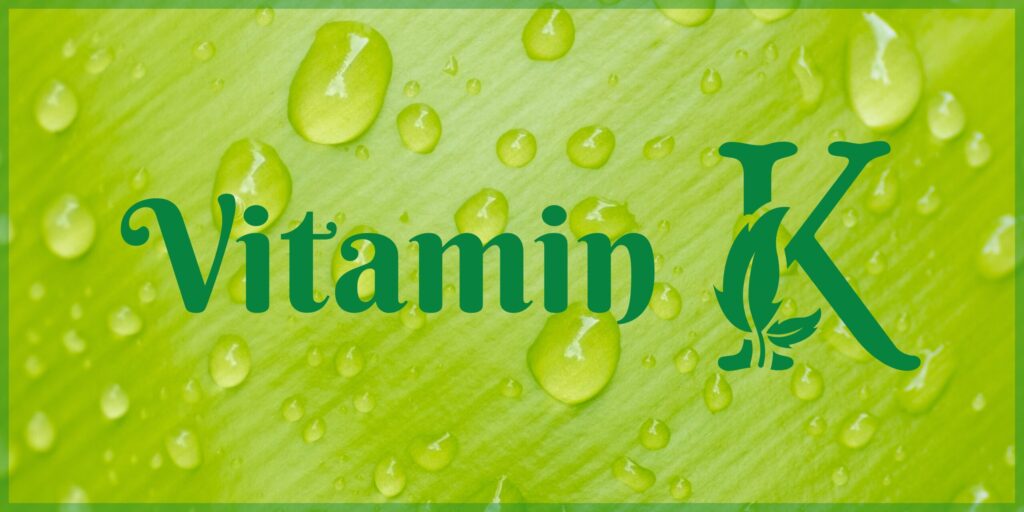Benefits of vitamin k
The benefits of vitamin k, along with its deficiency and sources, are expounded thoroughly in this post. Vitamin K is essentially a combination of molecules, with vitamins K1 and K2 appearing to be the most important. The principal form, phylloquinone, can be seen in green leafy veggies like collard greens, kale, and spinach, while menaquinones, the other form, can be seen in fermented meals and some animal products; bacteria residing inside the human body can also generate menaquinones. Every organ in the body, including the pancreas, liver, brain and heart, contains vitamin K and the vitamin breaks down fast and then is flushed out of the body through urine or stool. In contrast to other fat-soluble vitamins, vitamin k rarely reaches hazardous levels in the body, even at high consumption, because of the above process. Vitamin K aids in blood clotting and prevents excessive bleeding, but unlike several other vitamins, it is not commonly taken as a nutritional supplement.
Vitamin K deficiency
Although vitamin K shortage in adults is uncommon, it may arise in those consuming drugs that inhibit vitamin K metabolism, including antibiotics, or in those suffering from diseases that impair food and nutrient intake. A vitamin K deficit is also conceivable in newborn babies, as vitamin K does not pass the placenta and is present in trace amounts in breast milk. Due to the low supply of blood clotting proteins at birth, infants who are not given vitamin K supplements are in danger of bleeding. The below are the most often occurring symptoms of a deficiency: osteopenia or osteoporosis, haemorrhaging, bleeding, and a lengthened clotting time or an extended prothrombin period as evaluated in a doctor’s office. Improving older folks’ episodic memory is one of the benefits of vitamin k. Taking antibiotics for an extended period may cause the body’s vitamin K-producing bacteria to be destroyed, resulting in lower vitamin K levels. Vitamin K shortage is more likely to occur in those who are unable to eat while taking long-term antibiotics, and they may benefit from taking a supplement.
Supplements of Vitamin K
The tolerated upper limit of vitamin K toxicity has not been established, and consuming foods containing vitamin K is unlikely to cause toxicity; however, supplementation can cause toxicity. Reducing the build-up of minerals in the arteries, which restricts the heart’s ability to pump blood freely, decreasing blood pressure is one of the benefits of vitamin k. Many commonly prescribed drugs, such as blood thinners, anticonvulsants, antibiotics, cholesterol-lowering and weight-loss medications, may interact with vitamin K. If you’re on any of these medications, you should talk to your doctor about how much vitamin K you should take. In order to make certain the body has enough nutrients, a well-balanced diet should include plenty of fruits and vegetables. Supplements must always be taken when medically necessary and only in conjunction with a physician. To maximise absorption, it’s better to consume vitamin K foods with some fat, as it’s fat-soluble. So, add some olive oil or chopped avocado to your favourite salad of leafy greens, and enjoy!
Sources, levels, and uses of Vitamin K
Vitamin K is also present in trace levels in meat and dairy products, cereal grains, vegetable oils, and green leafy vegetables like broccoli and spinach. The benefits of vitamin k entail aiding in producing several proteins required for healing wounds, blood clotting and bone formation. Vitamin K-dependent proteins Prothrombin and Osteocalcin are essential for blood clotting and bone formation, respectively. For every kilogramme of body weight, an adult requires around 1 microgram of vitamin K daily, and a microgram (mg) is 1,000 times smaller than a milligram. To put it another way: if you’re 65.5 kg, you need 65 micrograms of vitamin K per day, whereas if you’re 75 kg, you’ll need 75 micrograms per day. By eating a broad and balanced diet, you should be able to obtain all of the vitamin K you need. Vitamin K is retained in the liver for later utilisation, so you don’t have to eat it every day to get enough of this vitamin.



